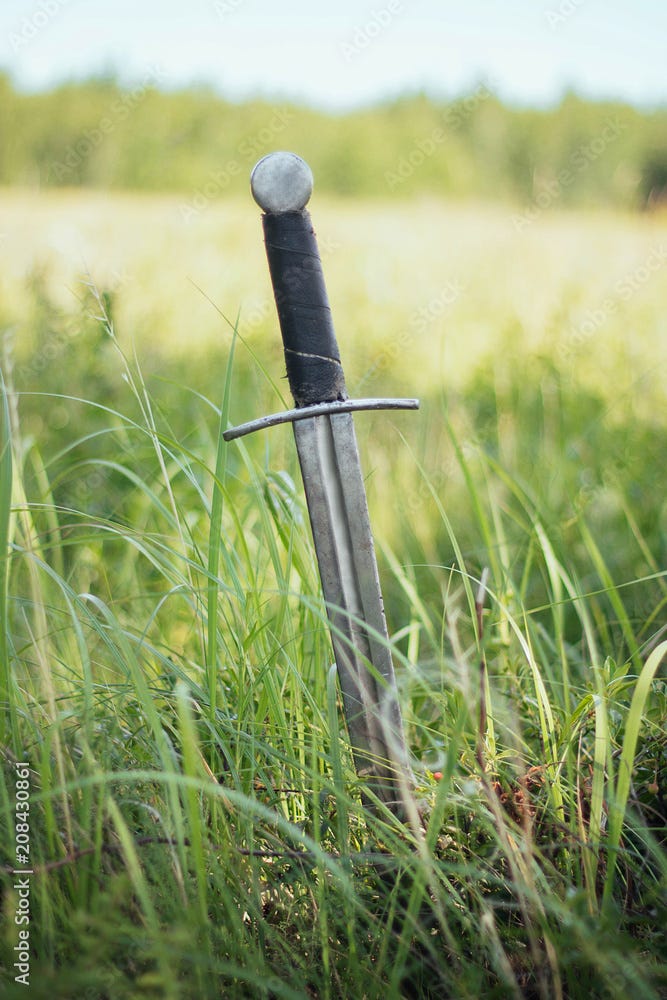There was footage from Ukraine on the news yesterday that really brought me up short. It showed a squad of Ukrainian soldiers moving through a forest somewhere outside of Kyiv in contact with the Russian enemy. They were wearing camouflage uniforms and carrying rifles and RPG’s and anti-tank rockets and were hiding behind trees and small rises in the land to avoid being seen by the enemy. As Russian rifle fire crackled from somewhere out of sight, they returned fire and moved forward to new positions of cover from which they continued to fire their weapons.
Suddenly, it occurred to me that I was watching something very familiar, something I had done myself in training at West Point and in the army. It was called fire and maneuver, shooting and moving toward the enemy position by flanking it to either side while maintaining as much cover as possible until you can place accurate fire on the enemy and eliminate him.
The words in the paragraph I just wrote above could have come from the army field manual we studied as Plebes in tactics class and later as lieutenants at the Infantry School at Fort Benning, Georgia. They gave us classroom tests on the chapter about fire and maneuver, and then we were graded in the field on training exercises. What struck me about the Ukrainian soldiers moving through the forest against the Russian army was that they looked exactly as I remembered my training. They were young. We were young. They moved purposefully, but you could feel their uncertainty: where exactly was the enemy fire coming from? How can we avoid it while still eliminating the threat or capturing the enemy soldiers? Should the squad maneuver to the left? If we do, will we run into one of the other squads in the platoon or even be mistaken for enemy soldiers by them and come under friendly fire?
The battlefield on which I trained was an American army post, and we were firing blanks at soldiers called aggressors, not a real enemy. But as I watched the Ukrainians doing it for real, I was struck by the idea that armies had done exactly what I was seeing on my television screen for centuries. Our army did it in Afghanistan and Iraq and Vietnam and Korea and in France and Italy and islands in the Pacific during World War II and in Flanders fields in World War I and at Shiloh and Gettysburg in the Civil War and in New Orleans during the War of 1812 and in Trenton and Yorktown and Brandywine in the Revolutionary War. Armies quite literally across the world and across the centuries performed the same maneuvers against enemies in countries they had invaded or while defending their own countries. The only things that changed over the centuries were the uniforms and the weapons. The soldiers stayed the same – impossibly young and confused and heroic and desperate and skilled and inexpert, triumphant in victory or hopelessly inert in defeat.
And then it occurred to me that I have been waiting all my life for war as it has been fought for millennia to reach obsolescence, to become as useless as the swords and spears and bows and arrows that have lain broken and discarded on battlefield after battlefield after battlefield among the dead bodies they were used against.
And now here we are doing it all over again as one ruler concludes he doesn’t like the ruler next door and decides to take his land and his treasure and goes to war to do it.
But this time, something is different. A very large portion of the world that was not attacked by Russia decided to retaliate by banding together and imposing economic and other sanctions against the nation that has broken international laws and norms by attempting to take over another nation. It’s an unprecedented attempt to create a situation where inflicting war on another nation becomes so untenable that the nation waging war will stop. These nations, led by the United States and NATO countries, have banned Russia from the global economy by shutting them out of the banking and investment systems; by severely limiting their ability to accumulate currencies that are acceptable for trade with other nations; by sending the value of their own currency, the Ruble, down to near zero; by restricting their ability to sell commodities like oil and gas in order to accumulate wealth; by imposing restrictions that keep their planes from taking off, their cargo ships from having a reason to leave port; by taking away their markets making it useless for their tractors to plow fields and their farmers to harvest money crops like wheat; by turning Russia into a pariah state locked down within its borders unable to participate in the world they have enjoyed being welcome in for the last two decades.
If having money on hand no longer means you can buy stuff that you need, what is the use of having it? If your currency reserves plunge to a worth of near zero, then how do you stockpile wealth and goods and the stuff of life? If all you are left with are commodities like oil and gas and coal and metals, but there is no market that will take them, then what do you do? What happens when the stuff you cannot manufacture but need for your machines and factories and airplanes and farm equipment and ships, what happens when it runs out? What happens when cell phone screens break and there are no replacements? When you’ve got a plane, but there’s nowhere to go? When you’ve got a dollar but there’s no place to spend it and nothing it will buy? What is the point of being a totalitarian despot when you’re so poor that nobody is afraid of you?
What happens to your human capital when there is no place for people to work, nothing for them to do? What happens when they get tired of living in an economic and cultural desert and decide to leave?
The world is learning about a new kind of power. Vladimir Putin has already recognized it by calling the sanctions against him and his country “a declaration of war.” For once, he’s right. What we might call the West, or the civilized world, has collectively declared war on Russia’s ability to exist in the form it has become accustomed to. A large part of the world has acted collectively to outlaw Russia’s behavior as a nation not just by condemning it as immoral and wrong, but by making it so difficult it will become impossible to sustain.
The X-factor in Russia’s war against Ukraine and the war of sanctions against Russia is time. Will the sanctions work well enough and quickly enough to stop Russia in time? It’s already evident that no matter how soon the Russian invasion ends, Ukraine will be so damaged that Putin will have destroyed the thing he said he wanted. This has been the way of war for all time.
I think the regime of sanctions will prove to have damaged Russia far more than we can foresee at this point. Russia is going to learn that it doesn’t take rockets or bombs or artillery shells to turn a country into rubble. Maybe the rest of the world will learn this lesson, too, and wars as we have known them will become obsolete, replaced by collective action that will produce not traditional victory or defeat but civilizational change that doesn’t leave dead bodies on battlefields.





When his army is sufficiently broken and the money to repair it is AWOL, perhaps some colonel or brigadier general will organize a coup against Putin, if for no other reason than to stem the breakage in the Russian military. Yesterday on a Ukrainian Telegram channel, I saw a Russian fighter jet crashing, presumably brought down by a defensive weapon that cost Ukraine a fraction of what it cost Russia to build the jet (not to mention the cost of training the pilot and weapons officers who were on board. According to the translation of the Ukrainian description of the action, both crew members ejected. No word on whether they were captured, killed or got away. Hopefully it was one of the first two options so they can’t be given another jet to use to murder civilians. But even if they got away, the Ukrainians (or whoever paid for the weapon that brought down the jet) got a terrific return on their investment and Russia has to buy a replacement fighter — if it can find the money and someone willing to sell them the technology.
To Putin (like trmp) Money + acquisitions + influence = power. Biden has removed all three from Putin. He has been essentially erased. It will take some time for him to completely disappear…. and many more lives.